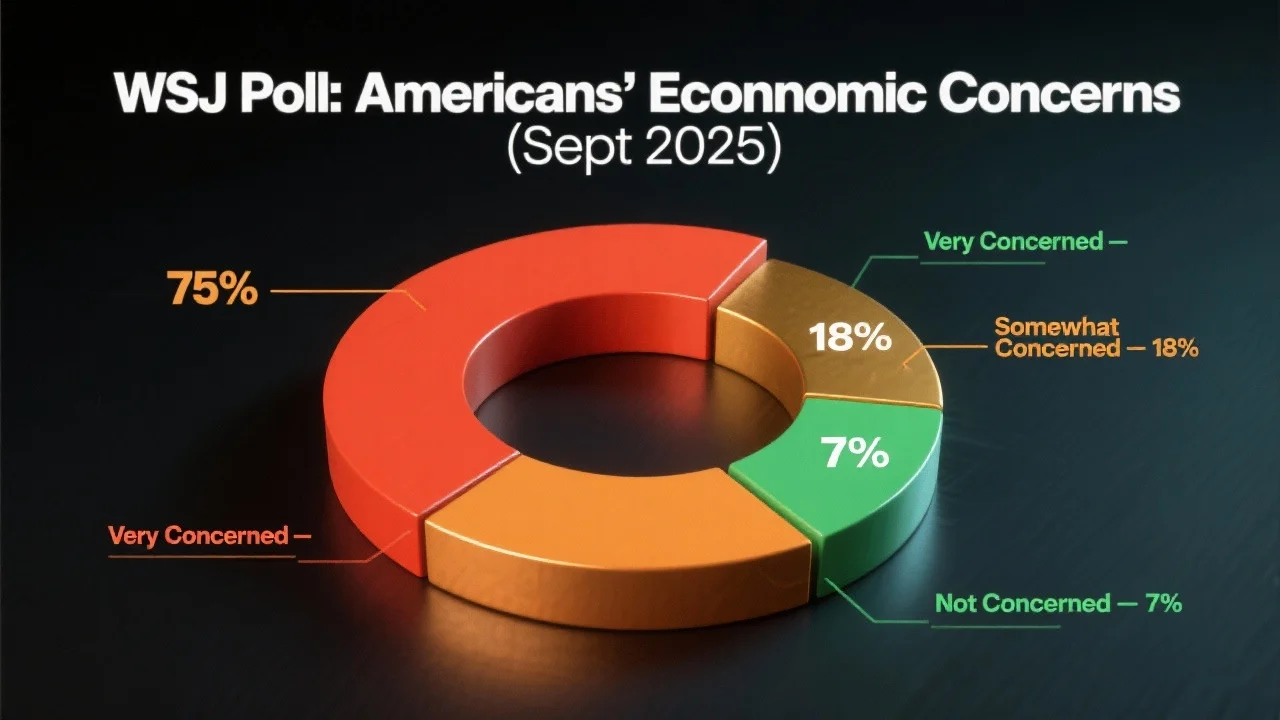
A Public That Doesn’t Buy the Pitch
The latest Wall Street Journal poll is blunt in its signal: Americans are uneasy with the economic course under President Trump’s leadership.
Just over half of respondents say they disapprove of how Trump is handling the economy, while only about a quarter express support.
On paper, unemployment remains relatively steady, and GDP is still technically growing. But the public isn’t tallying Bureau of Labor Statistics spreadsheets. They’re looking at checkout scanners and rent increases. And the verdict is coming through loud: confidence is slipping, even among groups that traditionally lean toward optimism when Republicans are in charge.
Tariffs, Inflation, and a Trust Gap
The unease coincides with Trump’s decision to levy sweeping new tariffs, framed as an effort to bring supply chains home. The move sparked immediate volatility in U.S. markets and raised the specter of higher consumer prices. For many voters, tariffs aren’t some abstract trade tool. They show up as more expensive clothes, electronics, or groceries.
Two-thirds of Americans now say they are very concerned about rising costs of food and basic goods. Sixty-one percent cite housing as a top economic stress, and nearly half remain anxious about energy bills.
While inflation has slowed compared to its 2022 peak, the perception gap is clear: if people don’t feel those gains in their everyday lives, the “inflation is under control” narrative rings hollow.
Partisan Mirrors, Universal Stress
The poll exposes a widening partisan divide in perception. Among Republicans, optimism about the economy’s future still outweighs pessimism. Among Democrats, the numbers are inverted, with three-quarters predicting economic decline.
Yet beyond the partisan rhetoric, the lived reality cuts across party lines. Families in Ohio and Florida are trimming grocery lists the same way urban renters in New York and California are recalculating rent versus paychecks.
It’s not just that the “vibe” is off. It’s that the day-to-day math isn’t adding up for many Americans.
The Political Risk Ahead
For Trump, the stakes are high. He won office again on the promise of hard reset—tearing down trade deals, reshaping immigration, forcing corporations to plant flags back on U.S. soil. The WSJ poll suggests voters aren’t convinced that disruption has translated into stability.
The risk is that the president ends up caught between markets that fear volatility and consumers who can’t afford volatility. That’s not a comfortable middle.
The Bigger Story
What this poll ultimately captures is less about Trump personally than about a long-term erosion of economic faith. For years, leaders of both parties have promised that growth would trickle into affordability, yet here we are: median families still doubting whether tomorrow will feel easier or harder than today.
The WSJ data points to a truth both blunt and simple: if Americans don’t feel secure, they won’t say the economy is good, regardless of what charts in Washington claim.
